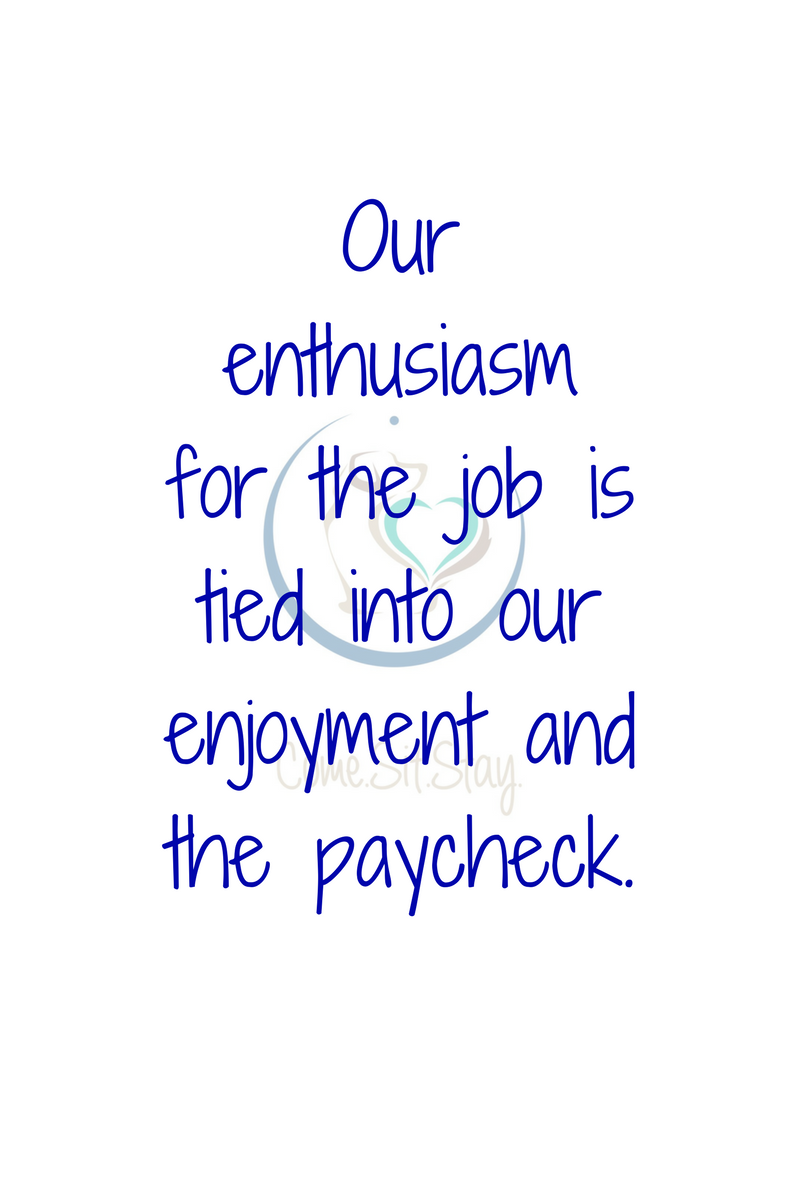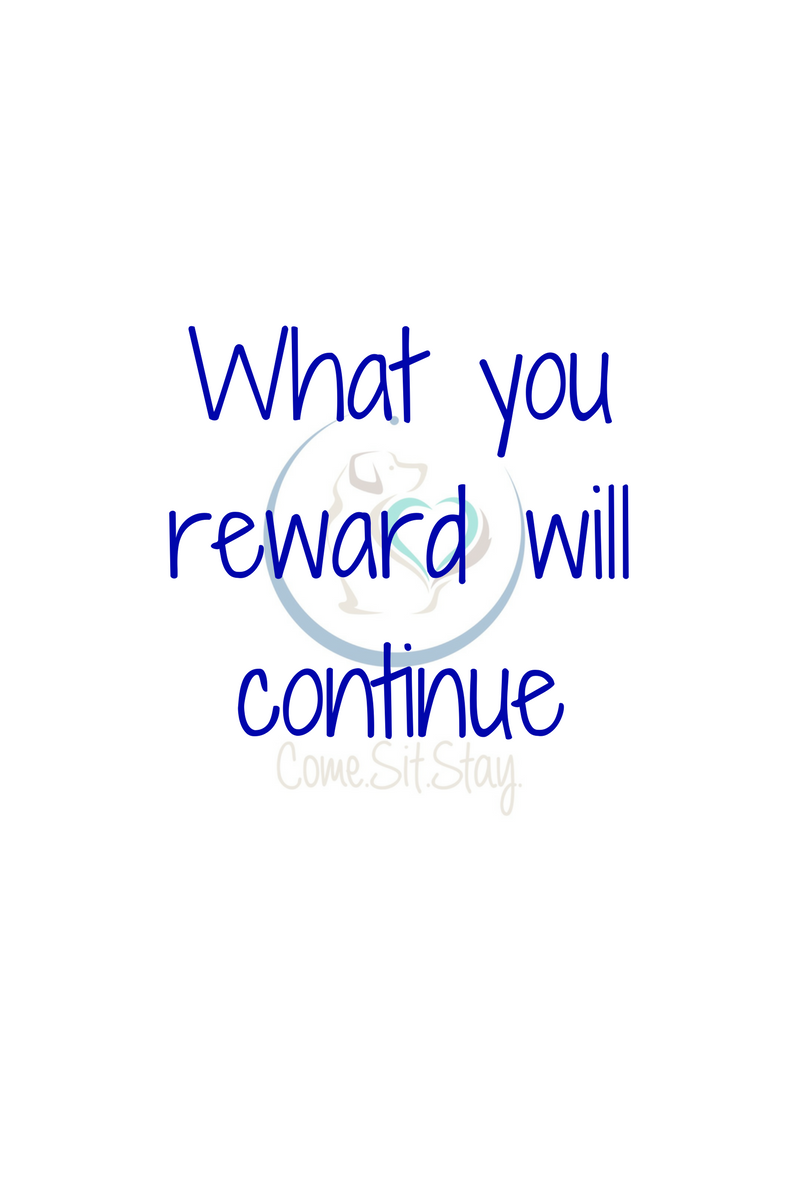Operant Conditioning is a fancy way to say “how animals learn”. Its a scientific theory which has four quadrants, or categories. The quadrants are these: positive reinforcement, negative reinforcement, positive punishment, and negative punishment. If you want to learn more about those, I suggest employing our mutual friend Google because I haven’t written that blog post yet. I’m sure I will, it just isn’t what is bothering me today. Today I am bothered by the phasing out of treats. Do I give my dogs a treat EVERY time I ask them to do something? No. To be quite honest, I do not. Sometimes I am wearing clothes without pockets (women’s fashion is horrible stuff). Sometimes I have run out of treats. Sometimes I am in a hurry and did not grab a treat from the dish put by the front door EXPRESSLY for this purpose. Those are the exceptions to the rule.
In much the same way that I expect to be paid for services rendered, I expect my dogs to get paid for theirs. I STRONGLY recommend that owners and handlers not begin to phase out food and play rewards for the first 6 months of training. This means that if you started training the “sit” on June 1, you give treats for every “sit” that you ask for and the dog performs until January 1. If you started teaching the same dog to roll over on cue on October 1, you give treats every time until April 1. This is just a handy rule of thumb. If you follow it, you end up with a dog who is ecstatic to perform behaviors EVERY time you ask.

In much the same way that our enthusiasm for our job is tied into our enjoyment and our paycheck, a dog’s enthusiasm and reliability is directly related to his likelihood to be paid. He’s not asking for your money, of course. He wants food, play, affection, approval. And in the same way that you deserve to be paid for every hour that you work, so does he. Every. Time.
In the science of learning (training) we have the concept of extinction. Extinction is when a behavior that was previously rewarded (either by classical or by operant conditioning) is no longer rewarded, the behavior stops! Practically speaking, this means that if you taught your sit, then you stopped doing the thing that induced your dog to sit in the first place, he will stop sitting when you ask. Ideally, because we are all humane humans and dislike causing harm or distress to other living creatures, we gave our dog a treat when he sat. The same principles work if you yank on a choke chain to get your dog to sit. If you stop yanking, he will eventually stop sitting.
Some behaviors are self rewarding, which means that the doing of the behavior itself is the reward. I enjoy reading. The reading in and of itself does not offer any secondary reward in most cases. The act of reading is the reward. In doggy terms, walking is often self rewarding (also chewing and digging, but we’ll talk about those later). As such, our dogs do not require any additional reward for walking. This means that the behavior IMMEDIATELY preceding the walking is the behavior that is rewarded. If your dog is pulling you, and you start or continue walking, you’re rewarding the pulling by walking. That’s another post I think…where was I?

Oh! Right. Paychecks. My point is this: what you reward will continue. What you do not reward will become extinct. If the behavior is self rewarding you call a trainer…*coughmecough* Or you find a way to make that behavior useful and put it on cue, then put the opposite behavior on cue as well. (See my post about “Hush”) If you find yourself in a bind or entirely unable to continue using an effective reward (usually food or play) and insist on phasing out treats, please consider doing so after an extended period of use. I usually recommend a minimum of six months per cue. That’s a period of six months with intense, consistent work on any given cue. After phasing out the reward, it is best to still reward occasionally. In this way you can ensure that your dog still anticipates that obedience might yield happiness for him.
Ideally, for your dog, the best scenario is to get some kind of reward for every completed task. Realistically, who can afford that much cheese?! We run out of treats, we forget treats, or treats might be impractical. A good game of tug is infinitely more effective as a reward, but you might find it difficult to find the space, or to fit a disgusting old rope into your suit pocket. In those instances, remember how much your bond with your dog has grown and take the time to scratch behind his ears and thank him. I guarantee that your praise will make it worthwhile.
